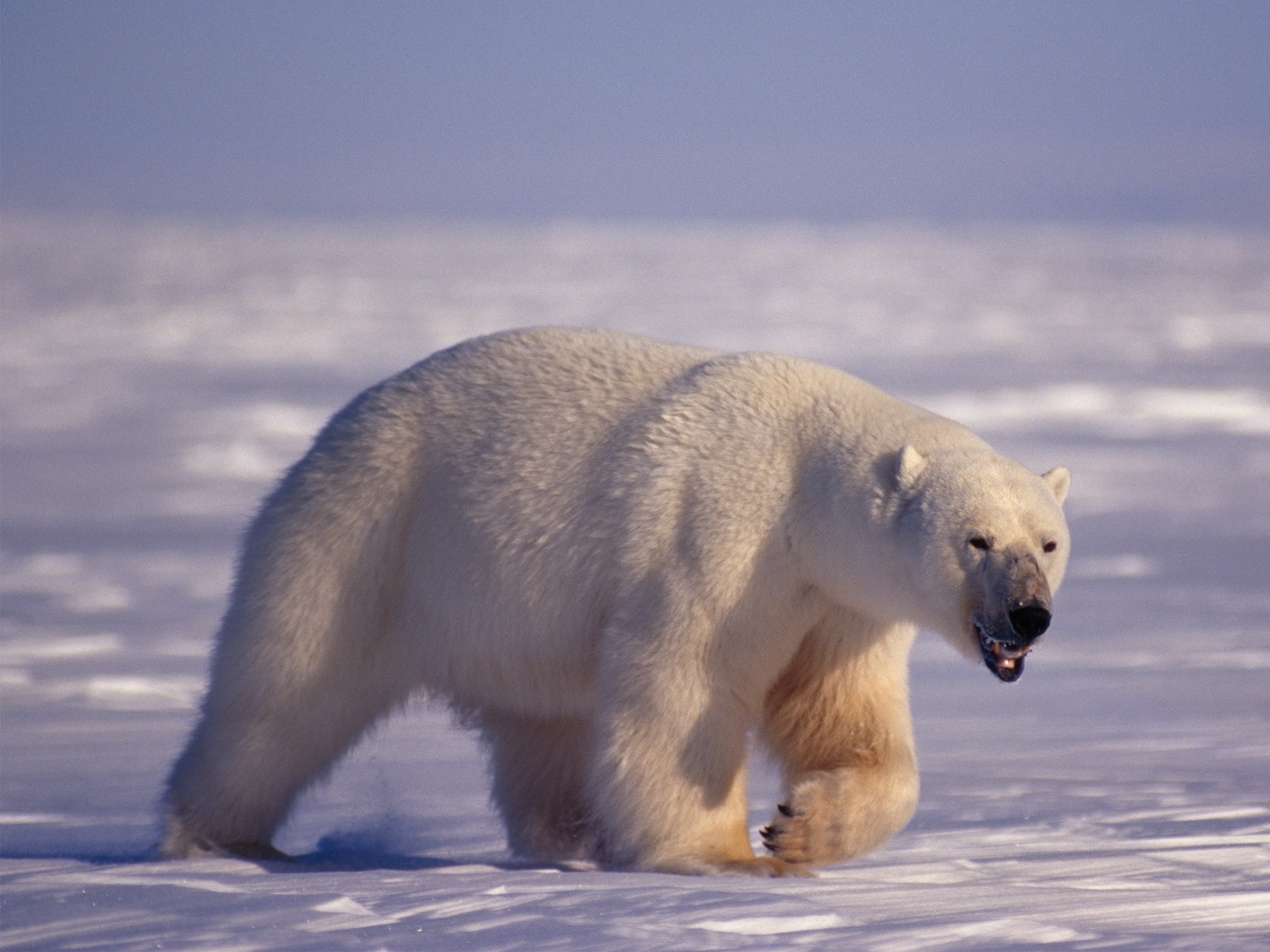
Is Pollution Weakening Polar Bears' Ability to Mate?
A new study finds a link between chemicals and bone loss that could damage males' penises, potentially harming reproduction.
In the Arctic, pollutants banned from the U.S. in 1979 but still floating around the environment seem to be affecting the strength of polar bear penile bones, possibly compromising the ability of the animals to reproduce.
PCBs, or polychlorinated biphenyls, were once used in everything from transformers to paint and are notorious for their ability to hitch a ride. They have been found all over the world, and they tend to hide out in whatever unlucky creatures eat them, ensconcing themselves in body fat and causing cancer and variety of other nasty effects.
Those effects, it appears, may also include damaging the baculum, a bone in the bear's penis, scientists report in the February issue of Environmental Research.
PCBs are especially bad for animals high on the food chain: A single fish may have just a little, but seals eat many fish each day, and polar bears eat seals. Eventually, all those pollutants build up into quite a dose for larger animals. This is called biomagnification. (Watch: "State of Polar Bears.")
"With these chemicals, you don't see an acute toxic effect, but there are effects that are not really visible to the eye," said Christian Sonne, a biologist at Denmark's University of Aarhus and lead author of the study.
What Is a Baculum?
Many mammals, including cats, dogs, bats, gorillas, and hedgehogs, have a bone in their penises called a baculum. Humans are one of the few mammals without it. (Related: "A Most Interesting Bone.")
What does a baculum do? Over the years, theories have included helping males mate for longer periods of time and inducing ovulation in females, but the current scientific stance is, "We don't know!" says Sonne. In bears, it's thought the bone no longer has a particular purpose.
But Sonne said that even if the bone is an evolutionary leftover, if it should somehow break, it could cause a condition in which the bear is unable to mate.
And that's where the PCBs come in.
Chemical Romance
Sonne and his co-authors gathered polar bear bacula, which came from eight different subpopulations, from subsistence hunters in Canada and North Greenland. They tested the bones to determine their mineral density.
Separately, the team also analyzed adipose tissue, or body fat, from other bears in these populations to assess their concentrations of PCBs.
The team found that in populations where PCB concentrations were the highest, the mineral density of the bacula was lowest, a situation that could make the bones prone to breaking. Of course, the effect would involve the rest of the bears' skeleton, too, but because the baculum is so small, it's likely particularly vulnerable to loss of mineral density. And because of the baculum's location, its breakage could influence the bear population.
"Making a clear connection with pollutants is incredibly difficult, and this study shows a suggestive link, but it is far from definitive," said Andrew Derocher, a professor of biological sciences at Canada's University of Alberta and scientific adviser to Polar Bears International. Derocher was not involved in the study.
That doesn't mean we should ignore these findings, said Derocher. He warned that in addition to PCBs, there are several hundred chemicals—including brominated flame retardants, fluorinated compounds, and DDT—known to be influencing animals in the Arctic. And it's impossible to know exactly what effect each might have.
"This study really says that we need to be looking at the issue of pollution much more closely," he said.
The Perils of Being a Polar Bear
Some of Sonne's previous research found perfluoroalkyl carboxylates and perfluoroalkyl sulfonates, which cause reproductive and developmental problems, in polar bear livers, blood, muscles, and brains. His team has also shown a link between pollutants and declining polar bear skull density. (Watch "Highlights from the Polar Bear Cam.")
The way such studies are structured means that it is not possible to link the pollutants directly with problems in the bears. But, said Derocher, "the correlations all point the same way: Polar bears are affected by pollution."
He warns that mercury and other heavy metals also affect the bears, as do the stresses induced by climate change. Melting ice forces bears to spend more time on land where there's less food, which draws down their fat stores. (Related: "Polar Bear Numbers Plummeting in Alaska, Canada—What About the Rest?")
"This study is just one of very many that shows the perils of being a polar bear in the modern world," said Derocher.
Worst of all? Sonne says this may just be the tip of the iceberg.
"We never get access to the really sick bears," he said. "They either drown or they are eaten by a walrus or another polar bear, so the problem could be much bigger than we really think."